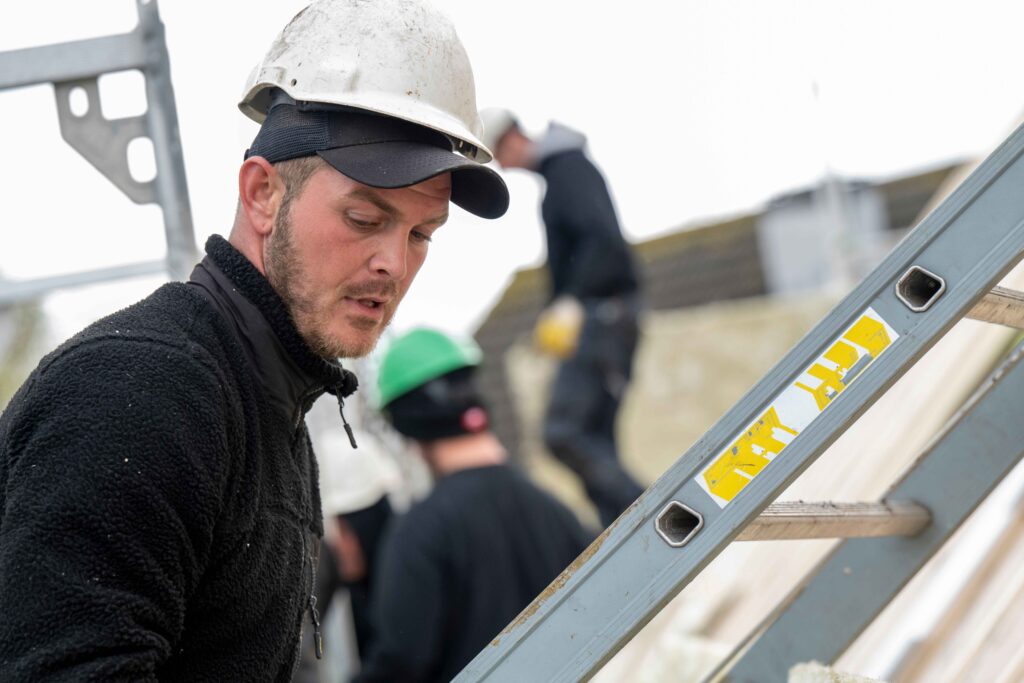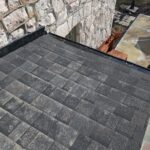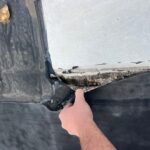Can I Choose My Own Roofer Instead of Insurance Company’s Roofer?
When it comes to dealing with roof repairs after storm damage or unexpected leaks, many homeowners face a common question:
“Do I have to use the insurance company’s roofer, or can I choose my own?”
This decision is significant, as the right choice can impact the quality, cost, and warranty of your roof repairs.
Let’s break down the details to help Asheville, NC homeowners navigate their roofing options, clarify common misconceptions, and make an informed choice with confidence.

Your Rights as a Homeowner
One of the most important things for homeowners to know is that, in most cases, you have the right to choose your own roofing contractor rather than relying solely on the insurance company’s roofer. However, insurance companies often encourage—or even pressure—policyholders to use their preferred contractors, creating confusion about what options are available.
The choice of using an independent roofing contractor versus the insurance company’s roofer has distinct advantages and disadvantages, impacting factors like quality of work, accountability, and overall satisfaction.
Why Insurance Companies Recommend Certain Roofers
Insurance companies typically maintain a network of preferred roofing contractors, often called a Managed Repair Program or Preferred Vendor Program. These programs are designed to help streamline claims by working with roofers who meet certain criteria, such as:
Quick Response Times: Insurance companies value efficiency, and preferred contractors can often start work faster, helping expedite claims processing.
Cost Control: Preferred vendors typically offer discounted rates to insurers, helping keep claim costs down.
Pre-Established Relationships: Insurance companies prefer working with roofers they know and trust to follow specific repair guidelines.
While using the insurance company’s roofer may seem convenient, homeowners should understand that they’re not obligated to do so. In fact, North Carolina law generally supports a homeowner’s right to select their own contractor.
Choosing Your Own Roofer: Key Benefits
Opting for an independent roofer offers several advantages, from increased flexibility to higher accountability for workmanship quality. Here are some specific benefits for Asheville homeowners:
1. Personalized Service
Independent roofers can offer a more personalized approach, focusing on the homeowner’s unique preferences, concerns, and timelines. With a locally based Asheville roofer, you’re likely to receive attentive service tailored to your specific roofing needs and Asheville’s unique climate demands.
2. Enhanced Quality Control
When you choose your roofer, you can vet them based on experience, references, and industry certifications. For example, roofers with GAF Master Elite® certification demonstrate a high level of professionalism and technical skill, backed by ongoing training.
3. Better Warranty Options
Many independent contractors offer comprehensive warranties that go beyond basic workmanship. A standard warranty from a preferred insurance roofer may be limited to a year or two, while reputable local contractors might offer 10-year or even lifetime warranties on their work. This extended coverage can provide long-term peace of mind.
4. Accountability and Transparency
Local roofers build their reputation on quality and customer satisfaction, often resulting in better communication and transparency throughout the project. According to a survey by the Better Business Bureau, independent contractors tend to have higher customer satisfaction ratings than contractors associated with large networks.
Common Concerns About Choosing an Independent Roofer
Despite the advantages, homeowners may still feel hesitant about hiring an independent roofer due to concerns over costs, potential delays, and claim denial risks. Let’s address some of these common worries.
1. Claim Denial Myths
A frequent misconception is that if you don’t use the insurance company’s roofer, they might deny the claim. This is not true in most cases. Insurance policies typically cover necessary repairs after a covered loss, regardless of the roofer selected. As long as the damage is well-documented and the costs are reasonable, homeowners should not worry about claim denials simply because they chose their own roofer.
2. Cost Disputes
While insurers may question costs, reputable independent roofers are usually experienced in dealing with insurance claims and can provide itemized quotes that align with industry standards. Some roofers even work directly with insurance adjusters to clarify pricing discrepancies and ensure the repair work is adequately funded.
3. Accountability and Documentation
Independent roofers are incentivized to ensure clear, comprehensive documentation of the damage and repair process. They often provide thorough inspection reports, photographs, and estimates, which strengthen your claim and increase transparency with the insurer.
Statistics: Choosing Your Own Roofer vs. Insurance Company’s Roofer
Recent industry studies and surveys provide valuable insights into the roofing experience of homeowners who choose their own roofer versus those who use the insurance company’s roofer:
– Customer Satisfaction: According to the Homeowner’s Survey of 2022, 78% of homeowners who selected their own roofer reported satisfaction with the job quality, compared to only 62% of those who used the insurance company’s recommended contractor.
– Warranty Differences: Independent roofers often offer longer warranty periods, with over 70% of independent contractors surveyed providing warranties of five years or more, compared to only 20% of insurance-preferred contractors.
– Faster Completion Times: Homeowners who choose their own roofers report faster completion times, with average project timelines reduced by 15-20% compared to those relying on the insurance company’s roofer due to less administrative processing and higher accountability.
Pros and Cons of Using the Insurance Company’s Roofer vs. Choosing Your Own
Pros of Using the Insurance Company’s Roofer
– Faster claims processing due to pre-established relationships.
– Often minimal paperwork required on the homeowner’s end.
– Pre-vetted contractors with compliance to insurance standards.
Cons of Using the Insurance Company’s Roofer
– Limited choice in contractor, potentially affecting service quality.
– Shorter warranty periods and fewer customization options.
– Less control over project timelines and specific material choices.
Pros of Choosing Your Own Roofer
– Greater control over quality, materials, and project timelines.
– Longer warranties and more options for personalized service.
– Accountability to the homeowner, not the insurance company.
Cons of Choosing Your Own Roofer
– Potential delays if cost disputes arise with the insurer.
– Homeowners may need to handle more documentation.
– Possible out-of-pocket expenses if charges exceed insurance coverage limits.
FAQs: Common Questions About Insurance and Roofing Repairs
No, most states, including North Carolina, give homeowners the right to choose their contractor.
Not usually. As long as the roofer follows insurance guidelines, claim denial is unlikely.
Many independent roofers are experienced with insurance claims and can assist with paperwork.
Look for certifications, read reviews, and ask for local references to verify a roofer's reputation.
Not necessarily. Independent roofers provide detailed estimates and often negotiate costs with insurers.
Yes, independent roofers typically offer a wider range of materials and customization options.
Many independent contractors offer warranties of 5-10 years or more, sometimes up to a lifetime.
Hiring a reputable, certified roofer and requesting a comprehensive warranty helps ensure quality.
Most roofers will work with the insurer to resolve discrepancies and keep repair costs within coverage limits.
No, insurance companies are not legally allowed to pressure homeowners into using specific contractors.
Final Thoughts: Choosing the Right Roofer for Your Needs
The choice between the insurance company’s roofer and an independent roofer is ultimately up to you. Opting for a reliable local roofing company in Asheville, NC, can often mean better service, higher quality, and a warranty that stands the test of time. Make sure to conduct your research, ask about warranty options, and prioritize quality and customer satisfaction.
As you weigh your options, remember that you’re not alone—a quality roofer will guide you through every step, ensuring a smooth experience and a roof you can rely on for years to come.





